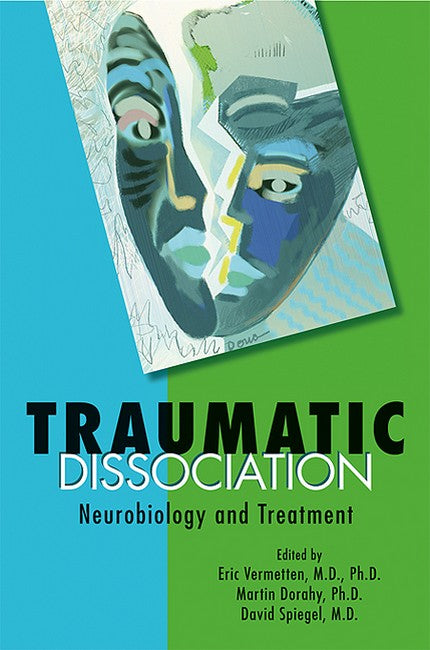Description
Contributors PrefaceIntroductionPart 1: Conceptual Domain of DissociationChapter 1. Relationship Between Trauma and Dissociation: A Historical AnalysisChapter 2. Attachment, Disorganization, and DissociationChapter 3. Memory and Attentional Processes in Dissociative Identity Disorder: A Review of the Empirical LiteratureChapter 4. Relationships Between Dissociation and Posttraumatic Stress DisorderChapter 5. Perceptual Processing and Traumatic Stress: Contributions From HypnosisPart II: Neurobiology of Traumaand DissociationChapter 6. Translational Research Issues in DissociationChapter 7. Neuroendocrine Markers of Early Trauma: Implications for Posttraumatic Stress DisordersChapter 8. Symptoms of Dissociation in Healthy Military Populations: Why and How Do War Fighters Differ in Responses to Intense Stress?Chapter 9. Peritraumatic Dissociation: Time Perception and Cerebellar Regulation of Psychological, Interpersonal, and Biological ProcessesChapter 10. Posttraumatic Stress Disorder Symptom Provocation and Neuroimaging: Heterogeneity of ResponseChapter 11. Psychobiology of Traumatization and Trauma-Related Structural Dissociation of the PersonalityPart III: Contemporary Implications for Assessment and TreatmentChapter 12. Psychiatric Approaches to Dissociation: Integrating History, Biology, and Clinical AssessmentChapter 13. Psychological Assessment of Posttraumatic DissociationChapter 14. Dissociative Identity Disorder: Issues in the Iatrogenesis ControversyChapter 15. Applications of Innate Affect Theory to the Understanding and Treatment of Dissociative Identity DisorderChapter 16. Trauma, Dissociation, and Impulse Dyscontrol: Lessons From the Eating Disorders FieldChapter 17. Treatment of Traumatic DissociationAfterwordIndex

